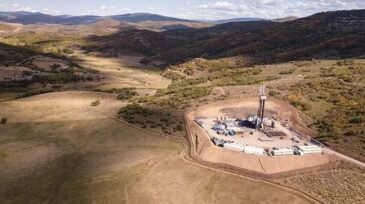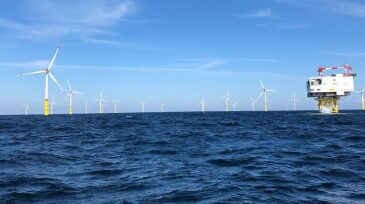Sustainability
The report says the capacity of renewables in the region is set to grow tenfold by 2040 as electricity demand and new sectors drive rapid solar and wind expansion.
As cutting-edge technologies unlock geothermal potential, Japan is channeling investments into powerhouse projects across the US, Indonesia, and New Zealand and priming its own reserves for a clean energy boom at home.
This study identifies critical knowledge gaps in wellbore integrity and underscores areas that require further investigation, providing insights into how wellbores must evolve to meet the technical demands of the energy transition.
-
The area has a potential for up to 11.8 million bbl of recoverable oil reserves. The program aims to keep oil flowing in the Trans-Alaska Pipeline System, which has seen dwindling throughput since 1988.
-
New research released by Columbia University's Center on Global Energy Policy and Resources for the Future estimates that a federal program to plug roughly half a million abandoned and so-called "orphaned" oil and gas wells could create as many as 120,000 jobs and reduce pollution.
-
Many oil and gas companies have been at the forefront of the development of sustainability reporting in recent years, but expectations of greater transparency are now filtering down to mid-sized and smaller players.
-
Intertek announced the first certification awarded under its new CarbonClear independent upstream carbon intensity certification program. The certification was awarded to Lundin Energy for its Edvard Grieg field in the central North Sea.
-
Investors and consumers are pressuring companies to incorporate environment, social, and governance (ESG) practices into their culture and operations. Now, ESG has gone from a nice-to-have feature to a must-have prerequisite.
-
The objective behind Ghana's local content requirement is to ensure the involvement of Ghana's industry, including its national oil company, in the development of the exploration, production, and decommissioning value and supply chain.
-
URTeC 2020’s opening plenary session panel shared insights into how the shale industry can scale technology, fiscal restraint, and social responsibility into a sustainable business case for a new energy landscape.
-
Hydrogen from fossil fuels is not only an easier way to pivot to clean energy than going full-on renewables; it could also establish new businesses and generate tremendous revenue by leveraging the oil and gas industry’s existing knowledge and expertise.
-
Although based on “intensity” and not “absolute” emissions, oil giants say it’s a step toward net-zero goals for 2050.
-
IHS Markit says the industry’s “striking pace of growth” and a dynamic commercial environment are fueling the movement to zero-carbon sources.













